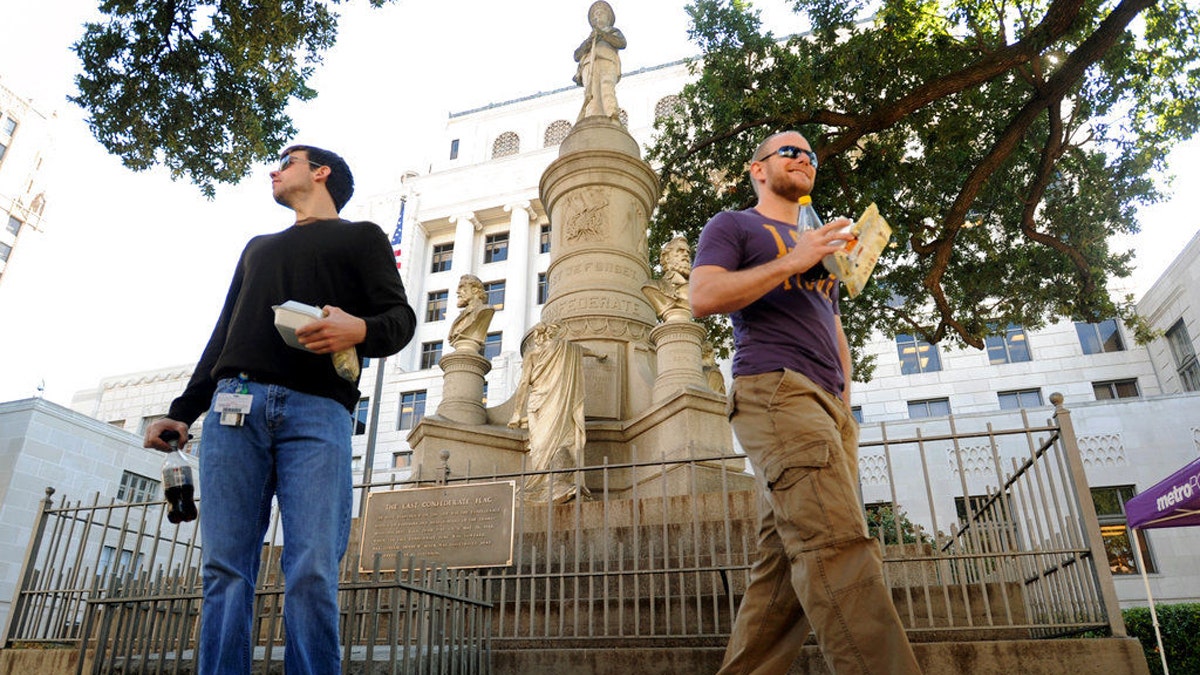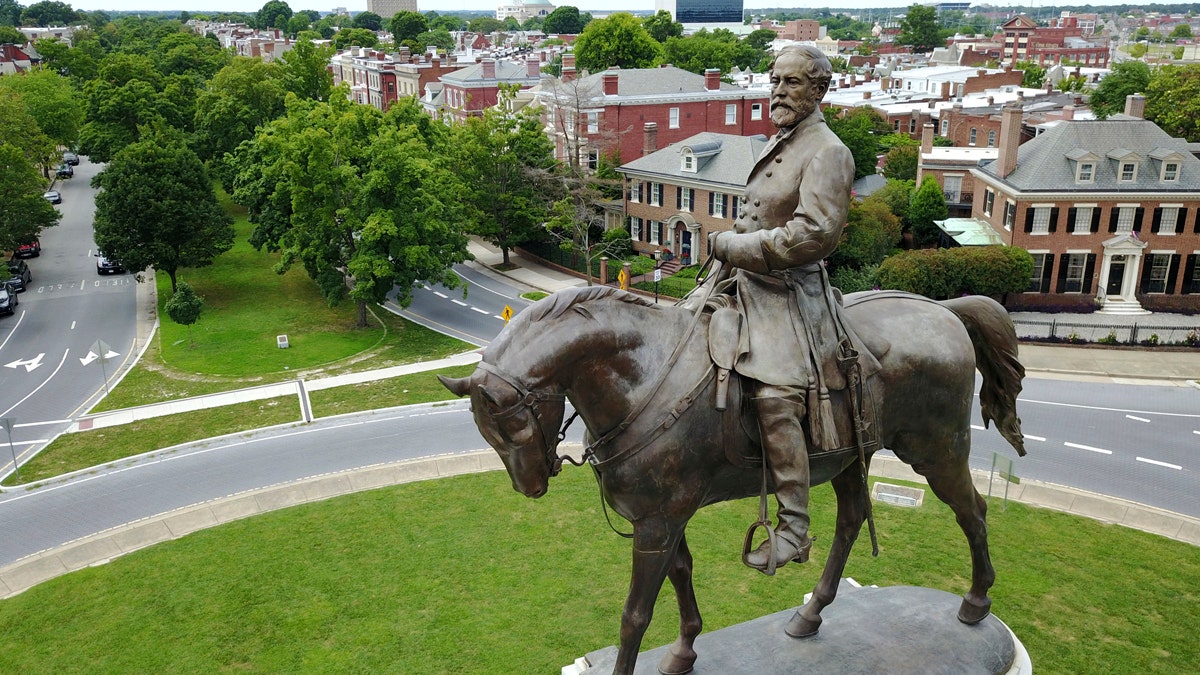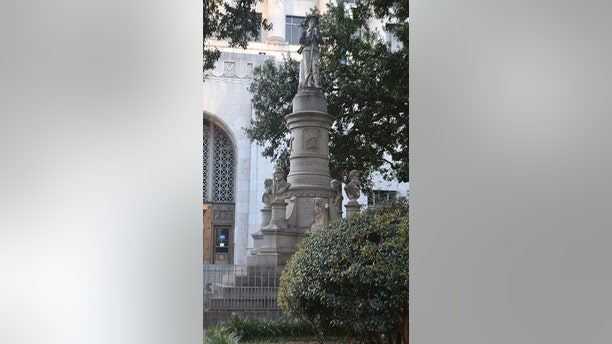
Sean Bordelon, left, and Raphiel Heard pause after reading the inscription on a Confederate soldier's monument in front of the Caddo Parish Courthouse in Shreveport on Nov. 4, 2011. (Photo by Douglas Collier, The Times of Shreveport, via The Associated Press))
An organization that erected Caddo Parish’s Confederate monument in 1906 filed a lawsuit to stop its removal.
The Caddo Parish Commission voted 7-5 after two hours of debate for a measure to take down the monument from the grounds of the parish courthouse at 501 Texas Street. The statue was put up in 1906 in a parish once known as “Bloody Caddo” because so many African-Americans were killed during Reconstruction.
The United Daughters of the Confederacy’s Shreveport chapter filed suit late Thursday, local media reported. Their action comes amid a nationwide soul-searching over whether and how to remove monuments put up in the early 20th century to honor the Confederacy.
Jackie Nichols, president of the Shreveport chapter of the UDC, said Friday that the commission's vote was disappointing, but not unexpected. She called the vote "illegal" and said it left the United Daughters of the Confederacy no option except going to court.
R.J. Johnson, chair of a citizens' advisory committee appointed by the commission, said moving the statue away from the parish courthouse in Shreveport “is about reconciling the community. This vote is an opportunity for us to shed our parish's reputation as 'Bloody Caddo,'” The Times of Shreveport reported.
One of those against, Rex Dukes, told the commission, "Over 300 of my people, of my ancestors, fought in the Confederate War; probably more than anybody else in this room. The monument needs to stay where it is," KSLA-TV reported, adding that removing the monument would only further divide the country.

A statue of Confederate General Robert E. Lee stands in the middle of a traffic circle on Monument Avenue in Richmond, Virginia. Communities across America are grappling with how and whether to remove these monuments. (AP)
LEXINGTON USES PRIVATE FUNDS TO TAKE DOWN CONFEDERATE STATUES
However, the station reported, more than 80 percent of those attending rose to their feet when Commission President Steven Jackson asked those who support the monument's removal to stand.
“This monument undermines a basic principle, a fundamental law, the 14th Amendment right to due process and justice under the law," Jackson said. "When individuals go to the courthouse, you have a symbol of injustice in front of a place of justice.”
The monument features a large statue of a young soldier on a pedestal, surrounded by busts of four Confederate generals on lower pedestals. A life-sized statue showing Clio, the muse of history, points to a 3-foot-high (1-meter-high) book of remembrance which bears the words “Love's tribute to our gallant dead.”
The lawsuit contends that moving the monument would violate the organization's rights to free speech, due process and equal protection under law, the newspaper reported. The right to equal protection is in the 14th Amendment, which was passed to protect the rights of freed slaves.
The lawsuit also contends that the United Daughters of the Confederacy owns the bit of land on which the statues stand.
WHICH CONFEDERATE STATUES WERE REMOVED? A RUNNING LIST
It is not certain the UDC owns the land, Commissioner Lyndon B. Johnson told the station. He said the parish may have reserved land for the monument without donating it to the group.
He's among seven individual commissioners named as defendants for voting to remove the monument. The commission itself also is a defendant.
The monument belongs in a museum, not in front of a courthouse, Johnson said.
Commissioner Jim Middleton, who voted against removal, said, “There were Daughters of the Confederacy that were 8, 9 and 10 years old when their parents left to go to the war, and when they came back may have been maimed or wounded. My personal perspective, I don't think they built the monument as a white supremacist act. I viewed it as being out love for their fathers that went to war.”
Many in the audience stood to applaud the vote, The Times reported.
A motion to have voters decide the matter failed 5-7.
American Civil Liberties Union of Louisiana executive director Marjorie Esman said the decision shows Shreveport is a place where freedom and equality are valued.
The Associated Press contributed to this report.






















